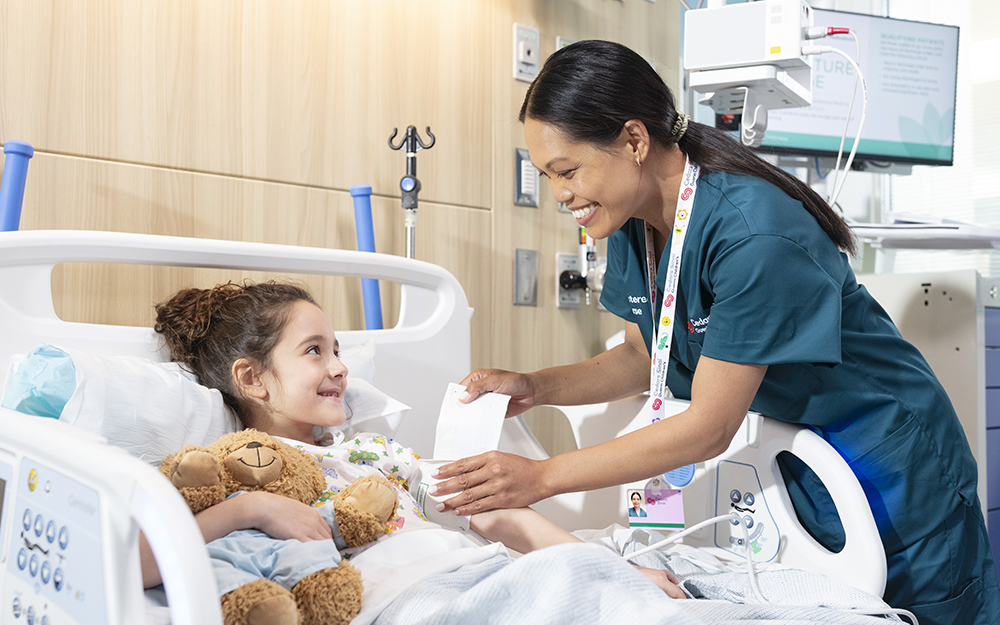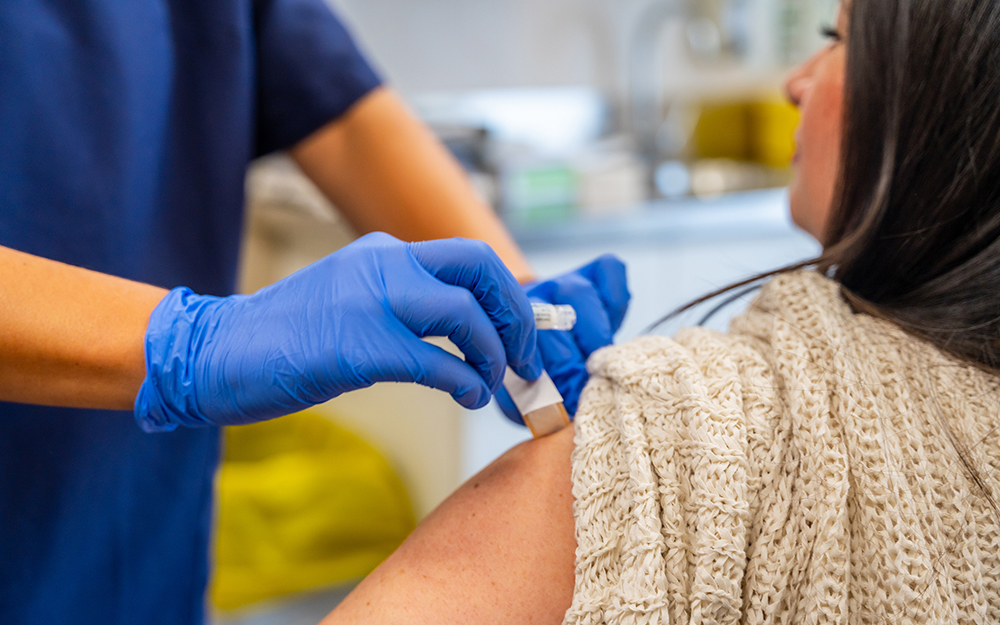Why You Should Consider Magnet Recognition in Your Care
Date
April 24, 2023

Date
April 24, 2023
Credits
Medical providers featured in this article
In Brief
{{cta-block}}
Nurses are often called the heart of healthcare. When you’re in the hospital, nurses are there for you around the clock—monitoring your healing, providing medication, helping you manage pain and guiding you along your care plan to get you home healthy.
That’s why Magnet recognition should attract your attention. The American Nurses Credentialing Center’s Magnet Recognition Program is considered the highest national honor for professional nursing practice, awarded to hospitals who meet its rigorous standards for excellence in nursing care. Cedars-Sinai Medical Center earned its sixth consecutive Magnet recognition in April 2023.
"It’s the gold standard for nursing," says Sarah Stepien, Cedars-Sinai’s Magnet Program director. "It’s not about winning an award. Our goal is to create an environment and culture to support our nurses in delivering the very best possible care to our patients and families."
Only 608 of the nation’s more than 6,300 hospitals currently hold Magnet recognition, and 49 of them are in California. Cedars-Sinai Medical Center was the first Southern California hospital to score the honor, earning its first designation in 2000. In addition to being a factor for patients weighing where to receive care, Magnet recognition is a ranking criteria for U.S. News & World Report’s annual rankings of "America’s Best Hospitals."
"It’s the gold standard for nursing. It’s not about winning an award. Our goal is to create an environment that supports nurses in delivering the best possible care to our patients and families."
Does Magnet recognition help patients?
Studies indicate hospitals with Magnet recognition provide better care that results in better patient outcomes, Stepien says. Magnet hospitals are associated with increased patient satisfaction, lower mortality rates, fewer falls and pressure ulcers, and overall improved quality and patient safety.
Magnet emphasizes the importance of employing highly trained and skilled nurses who can handle complex patient needs and engage in evidence-driven practice. This means they rely on the latest research and techniques to provide the best possible care.
"Magnet started in the 1990s as a program that sought to recognize hospitals that provide excellent nursing care," Stepien says. "Over time, its focus expanded. Now being a Magnet hospital means you promote and disseminate evidence-driven practices, form strong partnerships among healthcare professionals and use data to continuously drive improvements."
The formula for success in earning Magnet status supports great patient outcomes.
Does Magnet recognition help nurses?
A growing body of research links Magnet recognition to increased nurse satisfaction, more nurses staying in their jobs, lower turnover in nursing jobs and less burnout. Magnet provides a framework for nursing consisting of five parts:
- Transformational Leadership: Leaders create a clear shared vision that motivates others to work toward it.
- Structural Empowerment: The structure of the organization includes policies and programs that give nurses a say in decision-making, support professional development and encourage community outreach.
- Exemplary Professional Practice: Nurses make evidence-based care decisions while having accountability and autonomy.
- New Knowledge, Innovations and Improvements: Nurses contribute to patient care, their organization and their profession by participating in clinical research that improves practices and uncovers new models of care.
- Empirical Outcomes: Nurses demonstrate the difference they make using data to provide solutions that improve patient care and the work environment.
"Each of these components gives nurses a stronger voice in their practice and the opportunity to help our patients in meaningful ways," Stepien says.
What is the process to earn Magnet recognition?
"We’ve been a Magnet designated hospital for 23 years, and to stay a Magnet hospital, we must continuously show improvement," Stepien says.
The application process is essentially ongoing, as hospitals continue to document their Magnet achievements. They’re compiled into an electronic application consisting of dozens of stories and hundreds of pages demonstrating in detail how the medical center meets each of the requirements in the Magnet framework.
"We’re using data and experiences from our nurses to tell the story of how we integrate these Magnet principles into our everyday work," Stepien says.
After the document is reviewed, a team of appraisers conduct a site visit to see in action what they read about in the application.
What stood out to the Magnet team about Cedars-Sinai nurses?
The visiting team outlined 10 key strengths. They praised nurses for their flexibility during the COVID-19 pandemic and their ability to meet the surging demand for care. They also noted that in addition to coping with the constantly changing needs and conditions of the pandemic, the quality of care remained consistently excellent and nursing research continued, contributing to better ways to care for patients and protect staff.
Among the other strengths mentioned, two stood out to Stepien.
"The appraisers said they have never seen more impressive numbers of nurses with advanced degrees and certifications," Stepien says.
More than 93% of Cedars-Sinai clinical nurses hold a Bachelor of Science in Nursing degree (BSN)—or a higher degree such as a Master of Science in Nursing. Overall, roughly 65% of U.S. nurses have earned a BSN degree. In addition, 82% of Cedars-Sinai nurses have specialty certifications, which is a remarkable achievement when roughly one-third of U.S. nurses hold a certification.
The collaboration between doctors and nurses also wowed the Magnet team.
"They were especially impressed by the quality of the relationships between our nurses and physicians, and the obvious respect among us in our many collaborations and partnerships,” Stepien said. "They called our MD-RN relations ‘unprecedented.’ It’s exciting to be part of a team of truly talented professionals across many disciplines, and for all of us to share the goal of providing excellent care."





